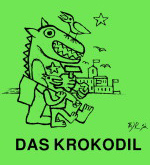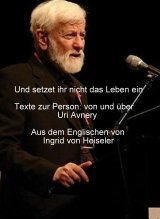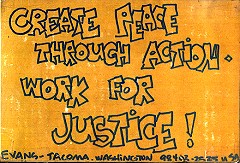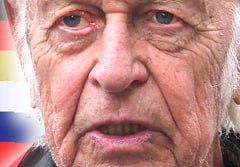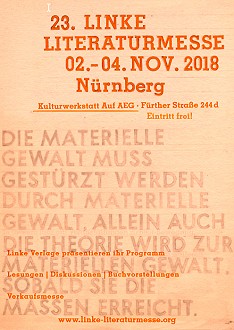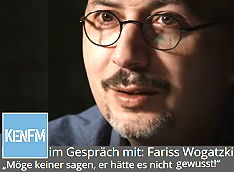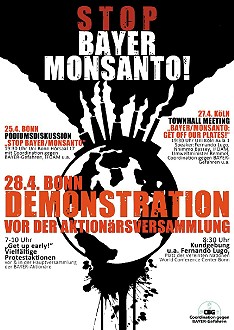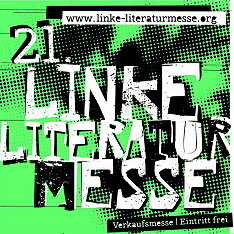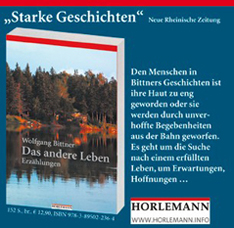SUCHE
Unabhängige Nachrichten, Berichte & Meinungen
Druckversion
Kultur und Wissen
Wer die Welt ändern will, muss den Menschen ändern!
Die wissenschaftliche Psychologie als Kompass
Von Rudolf Hänsel
 Menschen mit viel Geld und Einfluss, die der übrigen Menschheit nicht wohlgesonnen sind und nur ihren eigenen Profit im Sinn haben, versuchen auf verschiedene Weise, die Welt „aus den Angeln zu heben“. Der Weltkrieg gegen Russland gehört dazu. Der frühere Präsident von Greenpeace, Dr. Patrick Moore, sagte vor kurzem, dass die Eliten einen „Selbstmordpakt“ hätten, um die Weltbevölkerung zu reduzieren: „Wir stehen jetzt vor einer Situation, in der eine große Anzahl sehr mächtiger Organisationen und Eliten auf internationaler und nationaler Ebene eine Politik fordern, die im Grunde ein Selbstmordpakt ist. Im Grunde eine Art Todeswunsch.“ (1) Besorgte Zeitgenossen wollen diesen destruktiven Prozess gerne schnell und nachhaltig stoppen. Doch die Frage ist: Wie?
Menschen mit viel Geld und Einfluss, die der übrigen Menschheit nicht wohlgesonnen sind und nur ihren eigenen Profit im Sinn haben, versuchen auf verschiedene Weise, die Welt „aus den Angeln zu heben“. Der Weltkrieg gegen Russland gehört dazu. Der frühere Präsident von Greenpeace, Dr. Patrick Moore, sagte vor kurzem, dass die Eliten einen „Selbstmordpakt“ hätten, um die Weltbevölkerung zu reduzieren: „Wir stehen jetzt vor einer Situation, in der eine große Anzahl sehr mächtiger Organisationen und Eliten auf internationaler und nationaler Ebene eine Politik fordern, die im Grunde ein Selbstmordpakt ist. Im Grunde eine Art Todeswunsch.“ (1) Besorgte Zeitgenossen wollen diesen destruktiven Prozess gerne schnell und nachhaltig stoppen. Doch die Frage ist: Wie?
Da die Geschichte ein Werk des Menschen ist, muss der Mensch geändert werden, um die Welt zu ändern.
Gut gemeinte Appelle verfehlen oft ihr Ziel. Dagegen bietet die moderne wissenschaftliche Psychologie ein geeignetes Instrumentarium. Damit der Mensch für eine humane, friedliche und freiheitliche Gesellschaft gewonnen werden kann und sich in Bewegung setzt, muss er sowohl über die Vorgänge in der Welt aufgeklärt sein, als auch seine eigene Natur, seine seelische Verfassung sowie seine Reaktionsweisen und die der anderen kennen.
Wenn dieser Mensch dann zum Beispiel an das Problem des Krieges herantritt, ist er in der Lage zu unterscheiden: Welche Menschen führen Krieg? Sind es nur die anderen, die Politiker, die Kriegsführer, oder gehören wir selbst auch dazu? Zum Beispiel die Mutter, die ihre Söhne auf das „Feld der Ehre“ geschickt hat und dann „in stolzer Trauer“ eine schwarze Armbinde trug? Oder die Generation, die den Ersten Weltkrieg mitmachte und anschließend in den Zweiten marschierte, in dem Vater und Sohn auf dem „Felde der Ehre“ zurückblieben? Und was ist mit dem Pfarrer und der Kirche, die die Waffen segnet?
Mit der Psychologie hätte er einen Kompass, mit dem er menschliche Handlungsweisen richtig einordnen kann.
Wissenschaftliche Psychologie
Die Psychologie ist eine Wissenschaft über den Menschen, über die menschliche Natur: wie er wird, wie er heranwächst, welche Erlebnisse er macht, wie er sich in seinem Leben zurechtfindet. Seine Erfahrungen werden ihm vor allem von seinen Eltern, aber auch von den Lehrern vermitteln. Es ist dann das Produkt seiner Erlebnisse und Eindrücke in der Kindheit.
Bereits in den ersten Lebensjahren – mit fünf bis sechs Jahren, wenn es in den Kindergarten kommt – hat das Kind einen Kompass. Es weiß dann, wie es sich zu verhalten hat; auch über das andere Kind, über Vater, Mutter und Geschwister hat es eine Meinung. Es hat bereits seinen Charakter, seine Charaktereigenschaften und kennt seine Stellung in der Welt.
In der Medizin durfte der Mensch den Menschen – seine Organe und sein ganzes Inneres – nicht kennen lernen, nicht studieren. Die Kirche war aus bestimmten Gründen dagegen, dass man den Menschen erforscht. Erst als man die Notwendigkeit erkannt hatte, sind Leichen gestohlen worden und die Mediziner sind darangegangen, den Menschen zu erforschen. Die Medizin ist nur weitergekommen, weil sie die Funktion des Körpers erkannt hat.
Heute will die wissenschaftliche Psychologie das geistige und seelische Leben des Menschen erforschen: seine Gedanken, seine Gefühle und seine Erlebnisse. Wenn man die Gefühle und Reaktionsweisen des Menschen einmal versteht und erkennt, wie er heranwächst, wie er die Welt sieht und was in ihm vorgeht, dann wird einem vieles klar. Das ist dann ein anderes Denk- und Gefühlsvermögen. Man wird sich selbst und den anderen, die Gesellschaft und die ganze Welt richtig verstehen.
Aufklärung und Erziehung
Demgemäß sind Aufklärung und Erziehung die wichtigsten Maßnahmen, die zum Beispiel gegen den Krieg und alle anderen inhumanen und freiheitraubenden „Anordnungen“ der korrupten Obrigkeit ergriffen werden können (2).
Die autoritäre Erziehung der Vergangenheit schuf einen Menschentypus, der nur die Kategorien „Herrschen“ und „Dienen“ kannte. Kein Wunder, dass dieser Mensch weder die sozialen Probleme lösen, noch den Krieg aus der Welt schaffen konnte. Religiöse und soziale Ideologien sowie Privilegien im gesellschaftlichen Leben hindern den Menschen daran, die Einheit des Menschengeschlechts zu begreifen (3). So wird Zweitracht unter denen gesät, die darauf angewiesen wären, sich auf dieser Erde ein erträgliches Dasein zu sichern.
Heute weiß man, dass man nur mit psychologischen Erziehungsmethoden – Verzicht auf unangemessenes Autoritätsgebaren und Gewaltanwendung sowie Verständnis des kindlichen Seelenlebens – Menschen heranbilden kann, die gegen die Verstrickungen des Machtwahns gefeit sein werden und keine „Untertanen-Mentalität“ mehr besitzen (4).
Noch kann man nicht sagen, wann sich das Menschheitsgewissen, dessen Mahnruf durch die Jahrhunderte geht, endgültig Gehör verschaffen wird. Da aber an der Frage, ob sich die Menschen in weit höherem Maße als bisher zur allmenschlichen Solidarität bekennen werden, der Bestand des Menschengeschlechts hängt, sollten wir alle nichts unversucht lassen, die entsprechenden psychologischen Maßnahmen zu ergreifen.
Fußnoten:
(1) https://www.globalresearch.ca/former-greenpeace-president-dr-patrick-moore-says-elites-have-suicide-pact-reduce-world-population/5787942/
(2) https://www.globalresearch.ca/will-enlightenment-psychological-education-methods-push-back-domination-man-over-man-inspire-love-freedom/5787450/
(3) A. a. O.
(4) A. a. O.
English version:
If you Want to Change the World, you Have to Change the Man!
Scientific psychology as a compass
By Dr. Rudolf Hänsel
People with a lot of money and influence, who are not well-disposed towards the rest of humanity and only have their own profit in mind, are trying in various ways to "unhinge" the world. The world war against Russia is one of them. The former president of Greenpeace, Dr Patrick Moore, recently said that the elites had a "suicide pact" to reduce the world's population: "We are now faced with a situation where a large number of very powerful organisations and elites at international and national levels are calling for policies that are basically a suicide pact. Basically a kind of death wish." (1) Concerned contemporaries would like to stop this destructive process quickly and permanently. But the question is: how?
Since history is a work of man, man must be changed in order to change the world.
Well-intentioned appeals often miss their target. Modern scientific psychology, on the other hand, offers a suitable set of tools. In order for man to be won over to a humane, peaceful and free society and to set himself in motion, he must be enlightened about what is going on in the world as well as knowing his own nature, his mental make-up as well as his ways of reacting and those of others.
When this person then approaches the problem of war, for example, he is able to distinguish: Which people are waging war? Is it only the others, the politicians, the war leaders, or are we ourselves also part of it? For example, the mother who sent her sons to the "field of honour" and then wore a black armband "in proud mourning"? Or the generation that went through the First World War and then marched into the Second, leaving father and son on the "field of honour"? And what about the priest and the church blessing the arms?
With psychology, he would have a compass with which to properly classify human agency.
Scientific psychology
Psychology is a science about man, about human nature: how he becomes, how he grows up, what experiences he has, how he finds his way in life. His experiences are imparted to him primarily by his parents, but also by his teachers. It is then the product of his experiences and impressions in childhood.
Already in the first years of life – at the age of five to six, when it enters kindergarten – the child has a compass. It then knows how to behave; also about the other child, about father, mother and children. It also has an opinion about the other child, about father, mother and siblings. It already has its character, its traits and knows its position in the world.
In medicine, man was not allowed to get to know man – his organs and his whole inner being – not to study him. The Church was against studying the human being for certain reasons. It was only when the necessity was recognised that corpses were stolen and doctors began to study the human being. Medicine has only progressed because it has recognised the function of the body.
Today, scientific psychology wants to explore the mental and spiritual life of the human being: his thoughts, his feelings and his experiences. Once you understand the human being's feelings and ways of reacting and recognise how he grows up, how he sees the world and what goes on inside him, then many things become clear. It is then a different capacity for thinking and feeling. One will understand oneself and the other, society and the whole world correctly.
Enlightenment and education
Accordingly, enlightenment and education are the most important measures that can be taken, for example, against war and all other inhumane and freedom-stealing "orders" of the corrupt authorities (2).
The authoritarian education of the past created a type of human being who only knew the categories of "ruling" and "serving". No wonder that this man could neither solve social problems nor eliminate war. Religious and social ideologies as well as privileges in social life prevent man from understanding the unity of the human race (3). Thus second thoughts are sown among those who would depend on it to secure a tolerable existence on this earth.
Today we know that only with psychological methods of education – renunciation of inappropriate authority and the use of violence as well as an understanding of the child's soul – can one educate people who will be immune to the entanglements of power madness and no longer possess a "subject mentality" (4).
It is not yet possible to say when the conscience of humanity, whose call of admonition goes through the centuries, will finally make itself heard. But since the existence of the human race hangs on the question of whether men will profess all-human solidarity to a far greater degree than hitherto, we should all leave no stone unturned in taking the appropriate psychological measures.
Footnotes:
(1) https://www.globalresearch.ca/former-greenpeace-president-dr-patrick-moore-says-elites-have-suicide-pact-reduce-world-population/5787942/
(2) https://www.globalresearch.ca/will-enlightenment-psychological-education-methods-push-back-domination-man-over-man-inspire-love-freedom/5787450/
(3) op. cit.
(4) op. cit.
Dr. Rudolf Lothar Hänsel ist Lehrer (Rektor a. D.), Doktor der Pädagogik (Dr. paed.) und Diplom-Psychologe (Schwerpunkte: Klinische-, Pädagogische-, Medien- sowie Individual-Psychologie). Als Pensionär arbeitete er in Lindau am Bodensee viele Jahre als Psychotherapeut in eigener Praxis. In seinen Büchern und pädagogisch-psychologischen Fachartikeln fordert er eine bewusste ethisch-moralische Werteerziehung und eine Erziehung zum Gemeinsinn und Frieden.
Dr. Rudolf Lothar Hänsel is a teacher (retired headmaster), doctor of education (Dr. paed.) and graduate psychologist (specialising in clinical, educational, media and individual psychology): Clinical, educational, media and individual psychology). As a retiree, he worked for many years as a psychotherapist in his own practice in Lindau on Lake Constance. In his books and educational-psychological articles, he calls for a conscious ethical-moral education in values and an education for public spirit and peace.
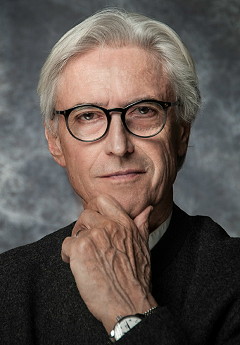
Online-Flyer Nr. 796 vom 10.08.2022
Druckversion
Kultur und Wissen
Wer die Welt ändern will, muss den Menschen ändern!
Die wissenschaftliche Psychologie als Kompass
Von Rudolf Hänsel
 Menschen mit viel Geld und Einfluss, die der übrigen Menschheit nicht wohlgesonnen sind und nur ihren eigenen Profit im Sinn haben, versuchen auf verschiedene Weise, die Welt „aus den Angeln zu heben“. Der Weltkrieg gegen Russland gehört dazu. Der frühere Präsident von Greenpeace, Dr. Patrick Moore, sagte vor kurzem, dass die Eliten einen „Selbstmordpakt“ hätten, um die Weltbevölkerung zu reduzieren: „Wir stehen jetzt vor einer Situation, in der eine große Anzahl sehr mächtiger Organisationen und Eliten auf internationaler und nationaler Ebene eine Politik fordern, die im Grunde ein Selbstmordpakt ist. Im Grunde eine Art Todeswunsch.“ (1) Besorgte Zeitgenossen wollen diesen destruktiven Prozess gerne schnell und nachhaltig stoppen. Doch die Frage ist: Wie?
Menschen mit viel Geld und Einfluss, die der übrigen Menschheit nicht wohlgesonnen sind und nur ihren eigenen Profit im Sinn haben, versuchen auf verschiedene Weise, die Welt „aus den Angeln zu heben“. Der Weltkrieg gegen Russland gehört dazu. Der frühere Präsident von Greenpeace, Dr. Patrick Moore, sagte vor kurzem, dass die Eliten einen „Selbstmordpakt“ hätten, um die Weltbevölkerung zu reduzieren: „Wir stehen jetzt vor einer Situation, in der eine große Anzahl sehr mächtiger Organisationen und Eliten auf internationaler und nationaler Ebene eine Politik fordern, die im Grunde ein Selbstmordpakt ist. Im Grunde eine Art Todeswunsch.“ (1) Besorgte Zeitgenossen wollen diesen destruktiven Prozess gerne schnell und nachhaltig stoppen. Doch die Frage ist: Wie? Da die Geschichte ein Werk des Menschen ist, muss der Mensch geändert werden, um die Welt zu ändern.
Gut gemeinte Appelle verfehlen oft ihr Ziel. Dagegen bietet die moderne wissenschaftliche Psychologie ein geeignetes Instrumentarium. Damit der Mensch für eine humane, friedliche und freiheitliche Gesellschaft gewonnen werden kann und sich in Bewegung setzt, muss er sowohl über die Vorgänge in der Welt aufgeklärt sein, als auch seine eigene Natur, seine seelische Verfassung sowie seine Reaktionsweisen und die der anderen kennen.
Wenn dieser Mensch dann zum Beispiel an das Problem des Krieges herantritt, ist er in der Lage zu unterscheiden: Welche Menschen führen Krieg? Sind es nur die anderen, die Politiker, die Kriegsführer, oder gehören wir selbst auch dazu? Zum Beispiel die Mutter, die ihre Söhne auf das „Feld der Ehre“ geschickt hat und dann „in stolzer Trauer“ eine schwarze Armbinde trug? Oder die Generation, die den Ersten Weltkrieg mitmachte und anschließend in den Zweiten marschierte, in dem Vater und Sohn auf dem „Felde der Ehre“ zurückblieben? Und was ist mit dem Pfarrer und der Kirche, die die Waffen segnet?
Mit der Psychologie hätte er einen Kompass, mit dem er menschliche Handlungsweisen richtig einordnen kann.
Wissenschaftliche Psychologie
Die Psychologie ist eine Wissenschaft über den Menschen, über die menschliche Natur: wie er wird, wie er heranwächst, welche Erlebnisse er macht, wie er sich in seinem Leben zurechtfindet. Seine Erfahrungen werden ihm vor allem von seinen Eltern, aber auch von den Lehrern vermitteln. Es ist dann das Produkt seiner Erlebnisse und Eindrücke in der Kindheit.
Bereits in den ersten Lebensjahren – mit fünf bis sechs Jahren, wenn es in den Kindergarten kommt – hat das Kind einen Kompass. Es weiß dann, wie es sich zu verhalten hat; auch über das andere Kind, über Vater, Mutter und Geschwister hat es eine Meinung. Es hat bereits seinen Charakter, seine Charaktereigenschaften und kennt seine Stellung in der Welt.
In der Medizin durfte der Mensch den Menschen – seine Organe und sein ganzes Inneres – nicht kennen lernen, nicht studieren. Die Kirche war aus bestimmten Gründen dagegen, dass man den Menschen erforscht. Erst als man die Notwendigkeit erkannt hatte, sind Leichen gestohlen worden und die Mediziner sind darangegangen, den Menschen zu erforschen. Die Medizin ist nur weitergekommen, weil sie die Funktion des Körpers erkannt hat.
Heute will die wissenschaftliche Psychologie das geistige und seelische Leben des Menschen erforschen: seine Gedanken, seine Gefühle und seine Erlebnisse. Wenn man die Gefühle und Reaktionsweisen des Menschen einmal versteht und erkennt, wie er heranwächst, wie er die Welt sieht und was in ihm vorgeht, dann wird einem vieles klar. Das ist dann ein anderes Denk- und Gefühlsvermögen. Man wird sich selbst und den anderen, die Gesellschaft und die ganze Welt richtig verstehen.
Aufklärung und Erziehung
Demgemäß sind Aufklärung und Erziehung die wichtigsten Maßnahmen, die zum Beispiel gegen den Krieg und alle anderen inhumanen und freiheitraubenden „Anordnungen“ der korrupten Obrigkeit ergriffen werden können (2).
Die autoritäre Erziehung der Vergangenheit schuf einen Menschentypus, der nur die Kategorien „Herrschen“ und „Dienen“ kannte. Kein Wunder, dass dieser Mensch weder die sozialen Probleme lösen, noch den Krieg aus der Welt schaffen konnte. Religiöse und soziale Ideologien sowie Privilegien im gesellschaftlichen Leben hindern den Menschen daran, die Einheit des Menschengeschlechts zu begreifen (3). So wird Zweitracht unter denen gesät, die darauf angewiesen wären, sich auf dieser Erde ein erträgliches Dasein zu sichern.
Heute weiß man, dass man nur mit psychologischen Erziehungsmethoden – Verzicht auf unangemessenes Autoritätsgebaren und Gewaltanwendung sowie Verständnis des kindlichen Seelenlebens – Menschen heranbilden kann, die gegen die Verstrickungen des Machtwahns gefeit sein werden und keine „Untertanen-Mentalität“ mehr besitzen (4).
Noch kann man nicht sagen, wann sich das Menschheitsgewissen, dessen Mahnruf durch die Jahrhunderte geht, endgültig Gehör verschaffen wird. Da aber an der Frage, ob sich die Menschen in weit höherem Maße als bisher zur allmenschlichen Solidarität bekennen werden, der Bestand des Menschengeschlechts hängt, sollten wir alle nichts unversucht lassen, die entsprechenden psychologischen Maßnahmen zu ergreifen.
Fußnoten:
(1) https://www.globalresearch.ca/former-greenpeace-president-dr-patrick-moore-says-elites-have-suicide-pact-reduce-world-population/5787942/
(2) https://www.globalresearch.ca/will-enlightenment-psychological-education-methods-push-back-domination-man-over-man-inspire-love-freedom/5787450/
(3) A. a. O.
(4) A. a. O.
English version:
If you Want to Change the World, you Have to Change the Man!
Scientific psychology as a compass
By Dr. Rudolf Hänsel
People with a lot of money and influence, who are not well-disposed towards the rest of humanity and only have their own profit in mind, are trying in various ways to "unhinge" the world. The world war against Russia is one of them. The former president of Greenpeace, Dr Patrick Moore, recently said that the elites had a "suicide pact" to reduce the world's population: "We are now faced with a situation where a large number of very powerful organisations and elites at international and national levels are calling for policies that are basically a suicide pact. Basically a kind of death wish." (1) Concerned contemporaries would like to stop this destructive process quickly and permanently. But the question is: how?
Since history is a work of man, man must be changed in order to change the world.
Well-intentioned appeals often miss their target. Modern scientific psychology, on the other hand, offers a suitable set of tools. In order for man to be won over to a humane, peaceful and free society and to set himself in motion, he must be enlightened about what is going on in the world as well as knowing his own nature, his mental make-up as well as his ways of reacting and those of others.
When this person then approaches the problem of war, for example, he is able to distinguish: Which people are waging war? Is it only the others, the politicians, the war leaders, or are we ourselves also part of it? For example, the mother who sent her sons to the "field of honour" and then wore a black armband "in proud mourning"? Or the generation that went through the First World War and then marched into the Second, leaving father and son on the "field of honour"? And what about the priest and the church blessing the arms?
With psychology, he would have a compass with which to properly classify human agency.
Scientific psychology
Psychology is a science about man, about human nature: how he becomes, how he grows up, what experiences he has, how he finds his way in life. His experiences are imparted to him primarily by his parents, but also by his teachers. It is then the product of his experiences and impressions in childhood.
Already in the first years of life – at the age of five to six, when it enters kindergarten – the child has a compass. It then knows how to behave; also about the other child, about father, mother and children. It also has an opinion about the other child, about father, mother and siblings. It already has its character, its traits and knows its position in the world.
In medicine, man was not allowed to get to know man – his organs and his whole inner being – not to study him. The Church was against studying the human being for certain reasons. It was only when the necessity was recognised that corpses were stolen and doctors began to study the human being. Medicine has only progressed because it has recognised the function of the body.
Today, scientific psychology wants to explore the mental and spiritual life of the human being: his thoughts, his feelings and his experiences. Once you understand the human being's feelings and ways of reacting and recognise how he grows up, how he sees the world and what goes on inside him, then many things become clear. It is then a different capacity for thinking and feeling. One will understand oneself and the other, society and the whole world correctly.
Enlightenment and education
Accordingly, enlightenment and education are the most important measures that can be taken, for example, against war and all other inhumane and freedom-stealing "orders" of the corrupt authorities (2).
The authoritarian education of the past created a type of human being who only knew the categories of "ruling" and "serving". No wonder that this man could neither solve social problems nor eliminate war. Religious and social ideologies as well as privileges in social life prevent man from understanding the unity of the human race (3). Thus second thoughts are sown among those who would depend on it to secure a tolerable existence on this earth.
Today we know that only with psychological methods of education – renunciation of inappropriate authority and the use of violence as well as an understanding of the child's soul – can one educate people who will be immune to the entanglements of power madness and no longer possess a "subject mentality" (4).
It is not yet possible to say when the conscience of humanity, whose call of admonition goes through the centuries, will finally make itself heard. But since the existence of the human race hangs on the question of whether men will profess all-human solidarity to a far greater degree than hitherto, we should all leave no stone unturned in taking the appropriate psychological measures.
Footnotes:
(1) https://www.globalresearch.ca/former-greenpeace-president-dr-patrick-moore-says-elites-have-suicide-pact-reduce-world-population/5787942/
(2) https://www.globalresearch.ca/will-enlightenment-psychological-education-methods-push-back-domination-man-over-man-inspire-love-freedom/5787450/
(3) op. cit.
(4) op. cit.
Dr. Rudolf Lothar Hänsel ist Lehrer (Rektor a. D.), Doktor der Pädagogik (Dr. paed.) und Diplom-Psychologe (Schwerpunkte: Klinische-, Pädagogische-, Medien- sowie Individual-Psychologie). Als Pensionär arbeitete er in Lindau am Bodensee viele Jahre als Psychotherapeut in eigener Praxis. In seinen Büchern und pädagogisch-psychologischen Fachartikeln fordert er eine bewusste ethisch-moralische Werteerziehung und eine Erziehung zum Gemeinsinn und Frieden.
Dr. Rudolf Lothar Hänsel is a teacher (retired headmaster), doctor of education (Dr. paed.) and graduate psychologist (specialising in clinical, educational, media and individual psychology): Clinical, educational, media and individual psychology). As a retiree, he worked for many years as a psychotherapist in his own practice in Lindau on Lake Constance. In his books and educational-psychological articles, he calls for a conscious ethical-moral education in values and an education for public spirit and peace.

Online-Flyer Nr. 796 vom 10.08.2022
Druckversion
NEWS
KÖLNER KLAGEMAUER
FILMCLIP
FOTOGALERIE






